House of Numbers: Anatomy of an Epidemic is a american film of genre Documentary released in USA on 19 april 2009
House of Numbers: Anatomy of an Epidemic (2009)
The House of Numbers: Anatomy of an Epidemic

If you like this film, let us know!
House of Numbers: Anatomy of an Epidemic is a 2009 documentary film directed, produced, and hosted by Brent Leung and described by him as an objective examination of the idea that HIV causes AIDS. The film argues that human immunodeficiency virus (HIV) is harmless and does not cause acquired immune deficiency syndrome (AIDS), a position known as AIDS denialism. The film's claims of impartiality have been widely rejected by scientists, and the film's claims about HIV/AIDS have been dismissed as pseudoscience and conspiracy theory masquerading as even-handed examination.
A group of scientists interviewed for the film later complained that their comments had been misrepresented and taken out of context, and that the film promotes pseudoscience. The film also interviews Christine Maggiore, a prominent AIDS denialist who later died after suffering from AIDS-related conditions.
Comments
Leave comment :
Suggestions of similar film to House of Numbers: Anatomy of an Epidemic
There are 8976 with the same cinematographic genres, 3447 films with the same themes (including 41 films with the same 3 themes than House of Numbers: Anatomy of an Epidemic), to have finally 70 suggestions of similar films.If you liked House of Numbers: Anatomy of an Epidemic, you will probably like those similar films :

Positive (1990)
, 1hDirected by Rosa von Praunheim
Genres Documentary
Themes Medical-themed films, Films about sexuality, LGBT-related films, Documentaire sur l'homosexualité, Documentary films about health care, LGBT-related films, HIV/AIDS in film, LGBT-related film
Actors Larry Kramer, Rosa von Praunheim, Ronald Reagan
Rating59%






Inside Lara Roxx (2012)
, 1h21Origin Canada
Genres Documentary
Themes Medical-themed films, Films about sexuality, Films about pornography, Documentary films about business, Documentary films about the film industry, Documentaire sur une personnalité, Documentary films about health care, HIV/AIDS in film
Actors Lara Roxx, Rebekka Armstrong
Rating64%





The film's director Mia Donovan documents Roxx's life in the 5-year period following her diagnosis. Donovan meets her in a psychiatric ward in Montreal suffering from bipolar disorder. The film Covers Roxx's return to L.A. and Las Vegas to reconnect with the industry, her appearance on the The Maury Povich Show, her attempt to establish a foundation for the protection of sex workers, and her crack addiction and entry into rehab.
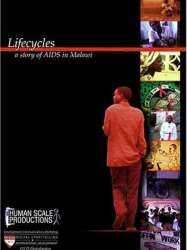
Origin Canada
Genres Documentary
Themes Films set in Africa, Medical-themed films, Documentary films about health care, HIV/AIDS in film
Lifecycles: a Story of AIDS in Malawi is an hour long documentary film shot over an eight-month period on location in Malawi, Africa. Malawi won't perish, but must grow with the virus as catalyst. Lifecycles provides a detailed glimpse into the lives of the Malawian people living with HIV and AIDS. Directors Doug Karr and Sierra Bellows travel across Malawi bringing us a glimpse of a complex situation that encompasses sadness and hope, defeat and renewal.

O meu marido esta a negar (2007)
, 21minutesGenres Documentary
Themes Films set in Africa, Medical-themed films, Documentary films about health care, HIV/AIDS in film
Hermínia est une mère séropositive. Elle s’en est rendu compte lors de ses consultations à la maternité. Gabriel, son mari, est au courant de sa maladie et l’accepte. En revanche il refuse de faire les tests. Dans ce cas le traitement d’Hermínia ne lui servirait à rien. Elle est convaincue que si elle l’emmène voir une pièce de théâtre sur ce thème, il changera d’attitude. O meu marido está a negar décrit le spectacle interactif du Teatro do Oprimido et son rôle pour les malades du sida, en se proposant d'encourager les changements de comportement et la prise de conscience de leur public par rapport à cette maladie.
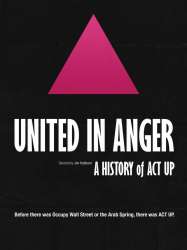 , 1h30
, 1h30Origin USA
Genres Documentary
Themes Medical-themed films, Films about sexuality, LGBT-related films, Documentary films about health care, LGBT-related films, HIV/AIDS in film, LGBT-related film
Rating72%





HIV arrives in the United States. People, mostly gay men, start dying. The US government ignores it. The Church condemns homosexuals. The Pharmaceutical industry produced expensive drugs. People keep dying. Love, grief and outrage lead to the formation of ACT UP in March 1987. United in Anger: A History of ACT UP documents ACT UP's use of direct activism, civil disobedience, inroads and outroads to raise awareness and affect change on a national level.
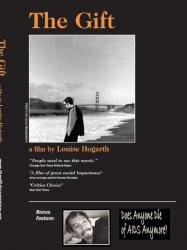
The Gift (2004)
Genres Drama, Comedy, Documentary
Themes Medical-themed films, Films about sexuality, LGBT-related films, Documentaire sur l'homosexualité, Documentary films about health care, LGBT-related films, HIV/AIDS in film, LGBT-related film
Rating65%





Doug Hitzel, a young man, reveals that after a year of unsuccessful dating he gave in to unprotected sex in an attempt to fit in; he is then seen crying.

A Closer Walk (2003)
, 1h25Genres Documentary
Themes Medical-themed films, Documentary films about health care, HIV/AIDS in film
Actors Glenn Close, Will Smith
Rating82%






Trilogia das novas familias (2008)
, 45minutesDirected by Isabel Noronha
Genres Documentary
Themes Films about children, Medical-themed films, Documentary films about health care, HIV/AIDS in film
The film consists of three short documentary films that show the faces and give voices to children orphaned by AIDS. The intentions of the documentary are to focus attention on the dismemberment of families in Mozambique due to AIDS, because it is a harsh reality and too often ignored.
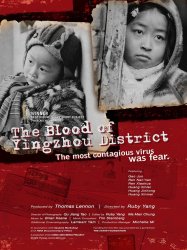 , 39minutes
, 39minutesGenres Documentary
Themes Medical-themed films, Documentary films about health care, HIV/AIDS in film
Rating72%





Le film décrit les conséquences du SIDA sur les orphelins du District de Yingzhou dans la province de l'Anhui en Chine. Leurs parents sont morts après avoir contracté la maladie lors de prélèvement de leur sang contre rémunération. Les enfants n'ont pas reçu de soins dans leur village car les habitants craignaient qu'ils soient contaminés.
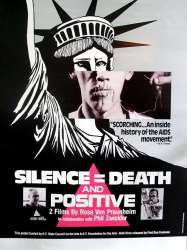
Silence = Death (1990)
, 1hDirected by Rosa von Praunheim
Origin USA
Genres Documentary
Themes Medical-themed films, Films about sexuality, LGBT-related films, Documentaire sur l'homosexualité, Documentary films about health care, Documentary films about cities, LGBT-related films, HIV/AIDS in film, LGBT-related film
Actors Paul L. Smith, Rosa von Praunheim
Rating71%





This film explores the reactions and response of New York City's artistic community to the ravages of the AIDS epidemic and other issues of homosexuality. Activist interview include representatives from the many arts organizations that have alerted the public to the crisis through performance art, music, theater and literature. Even with the gentler voices, the film’s undercurrent is an angry demand for action and recognition.
 Connection
Connection